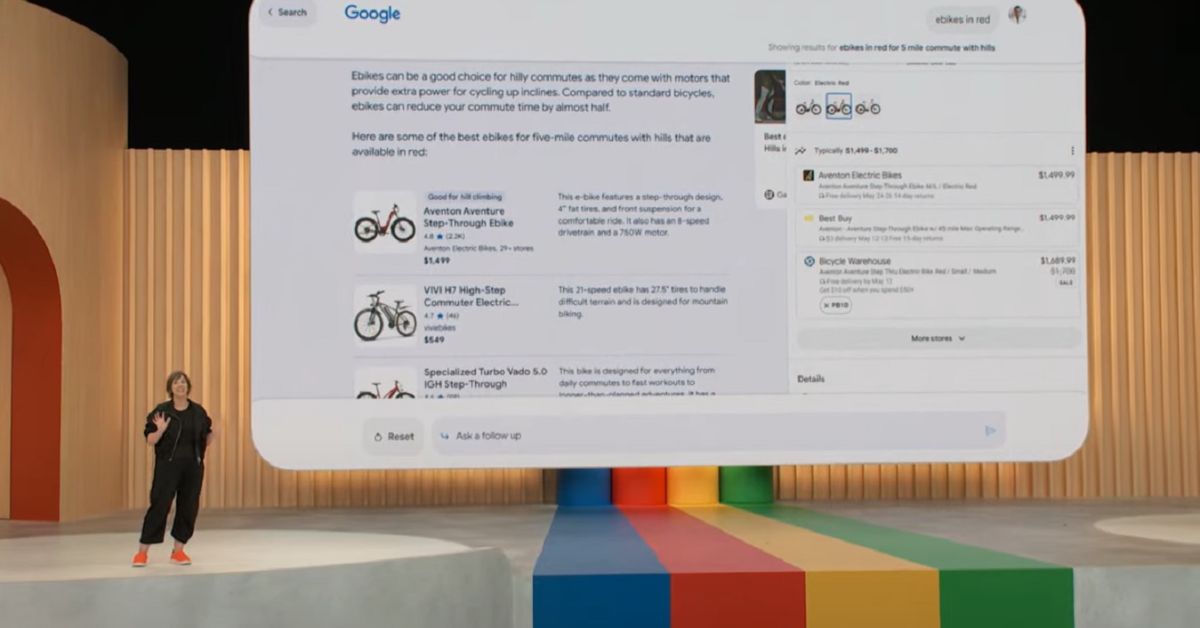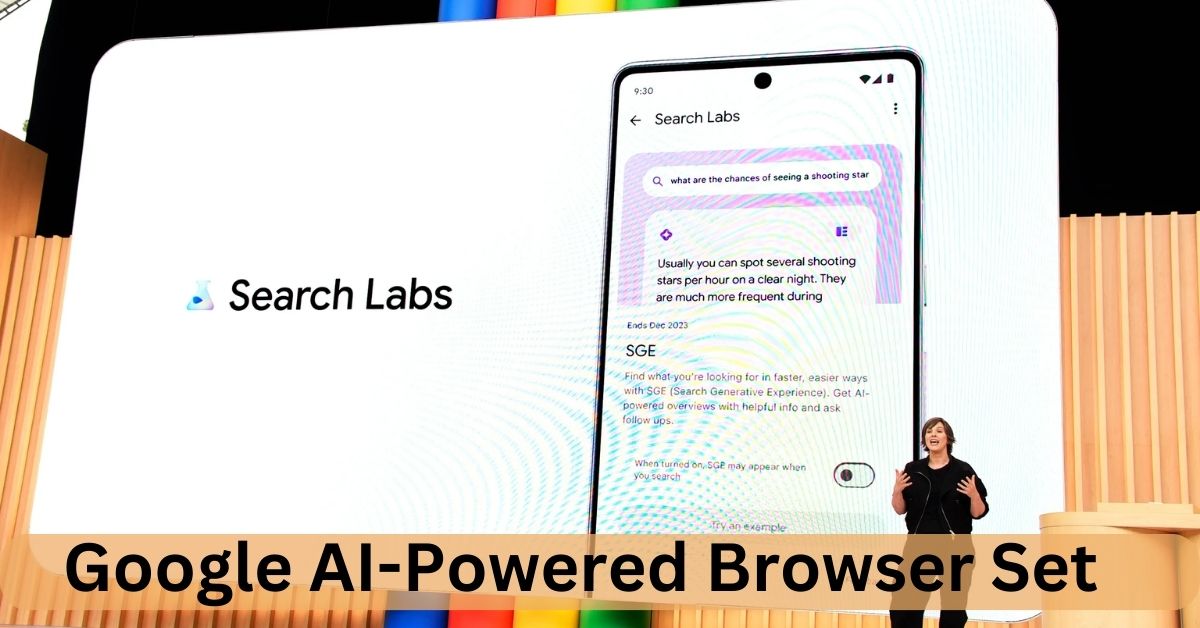Google AI-Powered Browser Set: Nearly three billion people use Chrome every day to access the web and engage with its content; next month, Google will start rolling out an experimental feature—an artificial intelligence writing assistant—in Chrome, the most widely used browser in the world.
“Communicating your ideas online, particularly in open forums or public spaces, can be intimidating,” the company states. With Chrome’s new capability, users will be able to “write with more confidence” while composing any type of message, be it a formal query about an apartment rental, a polite RSVP to a party, or a well-written review of a restaurant.
As quickly as programmers can design them, artificial intelligence assistants are appearing in widely used software. Microsoft has integrated generative AI capabilities into Office, the Edge web browser, and Windows; Google has been experimenting with this technology in Gmail, Android messaging, and Docs for a while.
In essence, this was certain to happen eventually. “Help me write” buttons and features are a logical progression from recommended replies and even spellcheck, and Google possesses the necessary technology to implement them. Additionally, there is reason to expect that a portion of Chrome users will be enthusiastic about using them.
Anthropic and ChatGPT are already used by millions of individuals to create a language that may be used in almost any situation. The incorporation of a comparable feature into Chrome by Google was inevitable; the company would do so without delay.
This functionality will initially only be available in limited testing at launch. It will be just as simple to overlook as it is to utilize if it turns out to be similar to the generative AI features that Google has been incorporating into Docs.
The deployment of generative AI is significant, though. The ability to have software compose content for users in almost every online setting will soon be available to potentially billions of people. This includes not only emails and documents, but also social media, comment sections, forums, product reviews, feedback forums, chat platforms, job applications, and more.
Google will provide users with statistically likely responses, along with the opportunity to make them shorter or longer or change their tone, in addition to or instead of people contributing something themselves.
The current World Wide Web could not have come to fruition without the billions of individual users who, with the hope of communicating with one another, entered text into innumerable browser text boxes.
Users’ contributions of text and media, made by other users either as themselves or with the intention of serving other people in mind, have played an important role in shaping the online experiences of searching, reading, shopping, and generally meandering.
These contributions have often been made freely and with the intention of participating in human-centered systems. When the text boxes have the ability to self-populate, what will happen?

Among other things, this kind of feature will serve as a huge litmus test for the intended applications of generative AI. From the start, ChatGPT users have found text generation intriguing for producing cover letters and resumes (though it’s unclear, for a variety of reasons, whether this is a smart idea), which is typical of situations when individuals are required to execute extremely false tones and styles.
Does anybody else find the idea of a “help me write” button on a Reddit thread, a heated comment area, a humorous friend’s post, a Goodreads review, or an Amazon product page to be illogical? In these settings, showing that you’re human is important, but the generic, averaged-out tone of the writing could come across as professional spam.
From my experience with a few similar tools over the past six months, I can say with some certainty that the majority of the time, they will feel ridiculous or inappropriate to use.
I’m picturing productivity hacks crammed into social settings, bug-eyed Clippys awkwardly hovering next to comment threads, and tools appearing in settings where their use would be extremely strange, if not offensive.
When material needs to be extracted from people who aren’t enthusiastic about producing it—for example, in the form of an assignment, a boring job duty, or a form that just needs to be filled out—artificial intelligence text production makes some sense. In some ways, they are already dehumanizing conditions.
Applying generative AI in less hostile contexts, where being authentic is the goal — essentially, the whole category you could refer to as elective uncompensated “posting” or, uh, “social interaction” — could appear like a strange, antisocial, counterproductive, wasted effort, and spammy alternative.
I don’t see the point in posting on Facebook if you’re going to use AI to create comments. Maybe the next big thing in generative AI will be a grammar checker that’s a little more forceful, because when text creation offers itself to billions of people, the vast majority of them say no.
In any event, Google will soon find out; this would indicate, or at least hint at, a deflation of expectations for the overall trajectory of this technology. However, considering the effects of automation on the online and the ways in which very specific use cases have begun to influence the internet for the general public, it is worthwhile to consider more bizarre scenarios.
Search results, which Google intends to augment or replace with generated text, have been inundated with passable (according to Google) generated content since the introduction of tools like ChatGPT. This has escalated the already-slightly-managed issue of SEO bait into a full-blown crisis for the fundamental purpose of one of the primary tools for finding things online.
Google began to surface more “perspectives” last year—posts written by individuals with “firsthand experience” on “social media platforms, forums and other communities”—in an effort to counteract the deterioration of search quality. These posts are essentially less likely to be spam driven by search engine optimization (SEO) because they were created for human audiences instead of an algorithm.
In the near future, Chrome will introduce more synthetic content into every open web source that currently uses such “perspectives.” Putting user concerns aside, this constitutes a significant portion of the corpus used to train Google’s AI tools. Consequently, the company will have to train its next generation of AI using material generated by its previous generation, which is problematic.
From Google’s limited perspective, text generation makes the most sense as an uphill battle in an already aggressive automation trend that has always been heading in one direction: from content discovery and categorization to distribution and now creation.
Perhaps more symbolic than important, it occurs at a time when the open web is slowly dying for reasons that go back to AI. These reasons include the commercialization of all online interactions and the eventual collapse of the economic model that allowed them to be monetized.
At the very least, the widespread use of text generation tools will alter the feel of the web’s more functional spaces where people converse and voluntarily share information (watch out, Wikipedia and Reddit!) and will subtly change users’ attitudes toward contributing to these types of projects.
If you enjoyed reading this article, you may also find the following other technology-related topics to be interesting:



